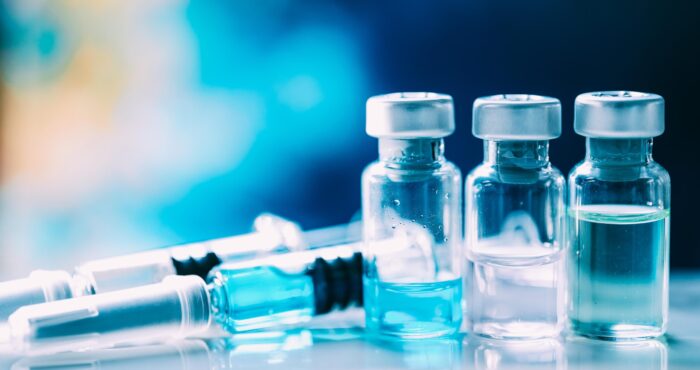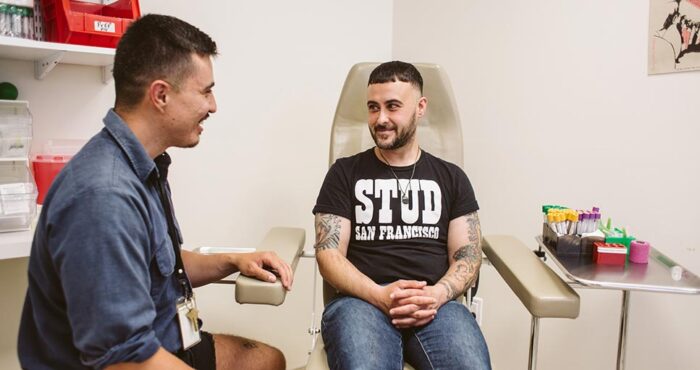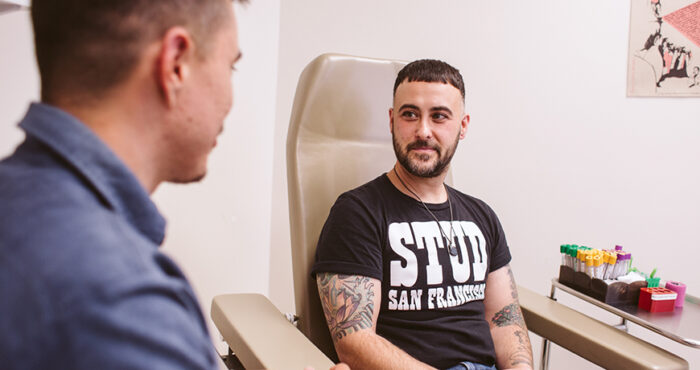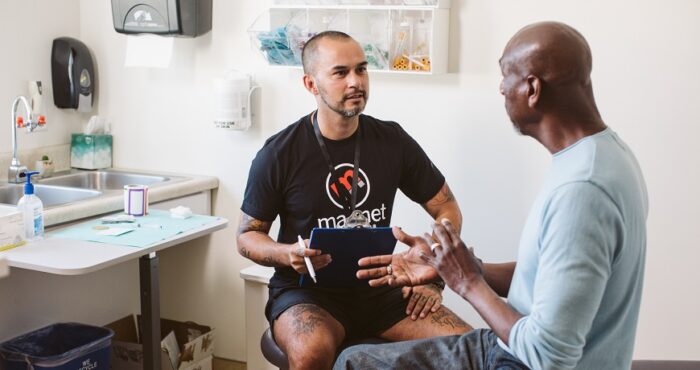What You Need To Know About Injectable PrEP (Apretude)
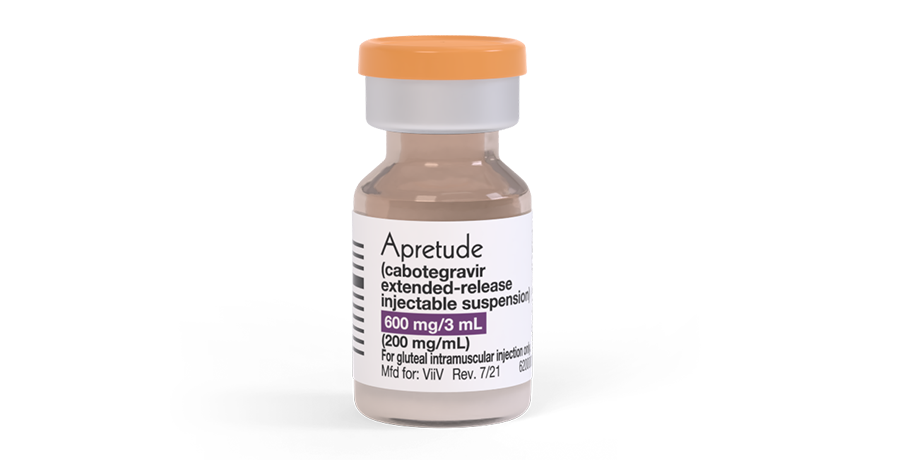
Last year, the FDA approved the use of Apretude, a long-acting injectable PrEP, as a new option for HIV prevention. Up until now, oral PrEP, commonly known by its brand names Truvada (TDF/FTC) or Descovy (TAF/FTC), has been the most popular method of preventing HIV infections. The ultimate goal is to end the HIV epidemic entirely, but we are a long way away from that. Due to a combination of social stigma, financial barriers, and lack of access to healthcare providers, the uptake of oral PrEP has been slow. Apretude could change that.
In 2020, only 25% of the 1.2 million people for whom PrEP is recommended were prescribed it. This is a significant increase from the 3% in 2015, but we still have room for improvement.
“It’s great that we have other options for people to take control of their sexual health. And this is just another tool in the toolbox,” says Jorge Roman, MSN, FNP-BC, AAHIVS, senior director of clinical services at San Francisco AIDS Foundation.
Read below to learn what you need to know about Apretude, who it’s for, and how to get a prescription.
What is injectable PrEP?
The FDA approved ViiV healthcare’s long-acting injectable cabotegravir (CAB-PrEP) as the sole form of injectable HIV PrEP. This integrase inhibitor is the first line of defense in preventing HIV acquisition and is administered via injections occurring every two months, six times a year.
Who is injectable PrEP for?
Injectable PrEP is for people of all genders and identities at risk of HIV infection due to sex or drug use. Currently, the injectable method of PrEP is recommended for people who have a negative reaction to oral medications or have trouble adhering to the daily pill schedule, according to Roman.
Cara Cooper, a Los Angeles native, asked her doctor about injectable PrEP because of her sensitivity to pills. Even after surgery, she would only take pain reliever pills for a couple of days because she wasn’t reacting well to them.
When her doctor recommended Apretude, it was a perfect choice. “It was a better option for me because I wanted the least amount of side effects and the same amount of protection [as the oral option],” says Cooper.
Apretude should not be prescribed to anyone already with HIV. This can lead to drug resistance and create a new strain of Apretude-resistant HIV.
Why aren’t more people talking about Apretude?
For starters, MPX (monkeypox) significantly impacted our public health system earlier this year. This forced many healthcare centers and providers to pivot their resource allocation towards preventing MPX infections and treating existing positive cases.
Secondly, injectable PrEP is viewed as an alternative for people who have trouble with a daily oral pill. People must have tried oral PrEP before going on Apretude. “With private insurance, you must justify why somebody cannot take the oral option first. If there’s a reason, you can apply for a substitution,” says Roman. While Apretude has proven superior to Truvada in preventing HIV acquisition, it’s a more expensive product for insurance companies to cover. Ultimately, private insurance is looking at the bottom line and for them, Truvada and Descovy are essentially free of cost.
How effective is injectable PrEP?
Two major clinical trials, HPTN 083 and HPTN 084, showed that injectable cabotegravir provided superior protection against HIV infection when compared to TDF/FTC (Truvada). Truvada provides more than 99% protection against HIV infection when used properly.
What are the side effects of injectable PrEP?
The most common side effects are injection site reactions like bruising, redness, soreness, or slight irritation. Most of these symptoms resolve themselves in a few days.
This makes Apretude a great alternative for HIV prevention for people suffering from kidney issues as oral PrEP can impact renal function.
How is Apretude administered?
Apretude is administered by a healthcare provider every two months, six times per year. This makes it an easier option for people who have access to LGBT centers, doctors, and clinics. The process itself is simple and streamlined.
“It’s not that hard. I set up my appointment. Then when I come in, I grab my medicine from the pharmacy downstairs. I head upstairs, and they get the shot done within 10 to 20 minutes,” says Vivi Fierce, a Los Angeles native who’s been on Apretude for six months.
“Everything’s been going fine with me. No side effects. Just make sure that you get tested because this isn’t everything. It’s just to help prevent HIV,” adds Vivi.
We’re likely to see more widespread adoption of injectable PrEP over the next year with more information being available. Ultimately, the more options the public health system offers, the better we can end the HIV epidemic. “There are talks about implantable devices in the future,” says Roman. Another tool for our HIV prevention toolkit.







